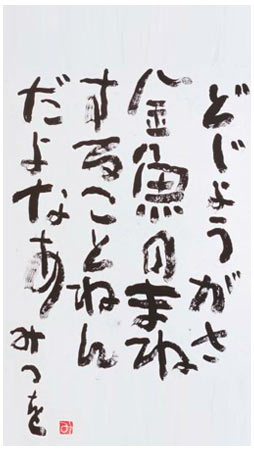One of the more welcome aspects of the Japanese people is their tendency to be humble, a trait you observe a lot of Japanese athletes, who smile in a self-effacing way after winning a great victory rather than running across the field yelling, “I’m #1!” Humility is an important trait for people to have in Japan, and the “correct” way to accept a compliment is usually to deny it, which can take some getting used to coming from the West. There are quite a few anime characters whose humility is an important part of their charm, including Ranka Lee or Max Jenius of the Macross universe, Kousaka of Genshiken and Sawako of Kimi ni Todoke, and we like them more as fans because of their modesty. The Japanese phrase for a person with a good humble nature is koshi ga hikui, lit. “his lower back is low and close to the ground.” Humility can change the course of politics, too. One reason Yoshihiko Noda was chosen as Japan’s next Prime Minister by his party was speech in which he compared himself to a bottom-feeding fish called a dojo loach, about the lowliest fish in the sea, saying, “I am exactly as you see me, not flashy like a goldfish. I want to roll up my sleeves and work hard for the people of Japan, even tough it means getting dirty with mud.” This was a reference to a poem by Mitsuo Aida, who revolutionized poetry by combining it with beautiful and highly stylized visual kanji calligraphy. The poem (above) reads, Dojo ga sa, kingyo no mane suru koto nen da yo naa (“You know, there’s no need for a dirty dojo fish to pretend to be a glamorous goldfish”). In other words, be what you are, and be happy with the contributions you can make to the world without pretending to be something you’re not.

A famous kanji poem by Mitsuo Aida, in his famous calligraphy style.














